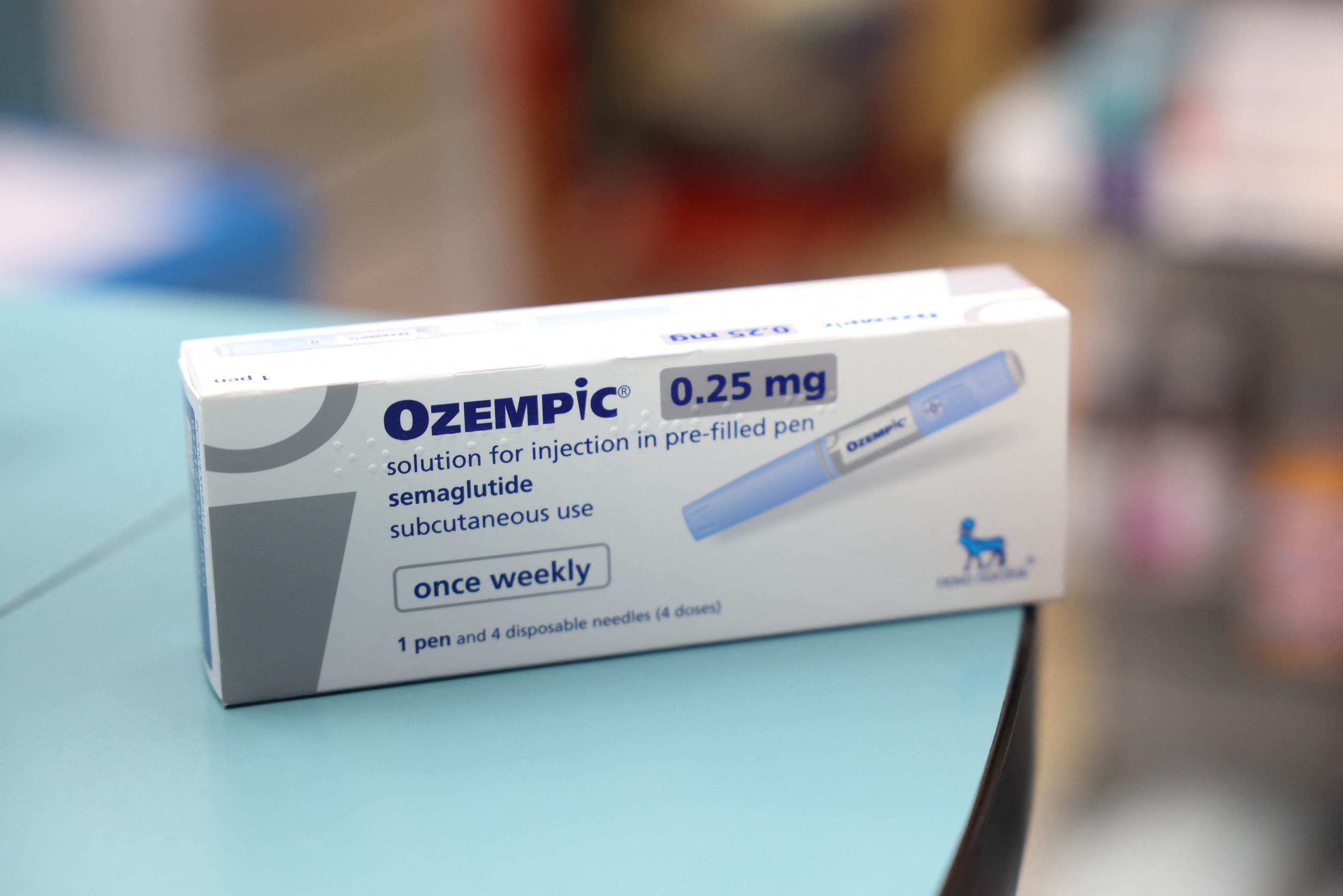A surgeon at an under-fire NHS trust used a Swiss Army penknife from his lunch to cut open a patient after being unable to find a sterile scalpel.
The unnamed surgeon was operating on a patient at the Royal Sussex Hospital in Brighton when he allegedly couldn't find a clean instrument.
So he decided to grab his penknife which he normally used to cut up his fruit for lunch instead.
University Hospitals Sussex said the operation took place outside the theatre in an emergency situation, but his actions were 'outside normal procedures and should not have been necessary'.
Fortunately, the patient survived, but those at the hospital felt his behaviour was 'questionable' and were 'very surprised' he couldn't find a clean scalpel.
It comes amid police investigating the Trust for alleged medical negligence and possible manslaughter charges.



According to The BBC, the same surgeon carried out three low-risk operations in two months where all three patients died soon after.
The Trust did launch a series of internal investigations into those who died and ruled that they were cared for poorly.
One woman who died would have pulled through if 'there were no post-operative complications,' it concluded.
Her daughter told The BBC: 'We didn't understand how mum died. No one seemed to know why the operation was not successful.'
But the health watchdog the Care Quality Commission looked at the deaths and found there was no breach of regulations.
Professor Catherine Urch, Chief Medical Officer for University Hospitals Sussex NHS foundation Trust said: 'In December 2023, a patient due to have an emergency operation went into cardiac arrest before going into theatre, and as a result needed immediate, life-saving care.
'The patient's life was thankfully saved as a result of the actions of the surgical team, but everyone involved has accepted that those actions taken in the moment were outside normal procedures, and should not have been necessary.
'The surgeon involved reported the incident, and together with the wider team they have reviewed what happened, to learn lessons. The patient was fully informed as part of our commitment to duty of candour, and the team rapidly made changes as a result, as well as sharing their learning with colleagues at patient safety meetings.'
University Hospitals Sussex said: 'Our investigations did not raise concerns about the surgeries themselves but did identify common themes for improvement, which we acted on immediately to ensure our services are as safe as possible.
'These included better communication with patients before and after surgery, improved training for end-of-life care, and strengthened processes especially when care is transferred from one site to another.'
Expert witness Prof Poston said he would be 'concerned that there were problems' during the course of his training and progression through training, as his employment record included a long wait to become a consultant.
Before the deaths happened, the operations had temporarily been moved to Worthing Hospital against clinical advice and concerns of those who worked there.

University Hospitals Sussex said the decision had 'a thorough process… with oversight from the executive team'.
Separately, an investigation termed Operation Bramber is looking into at least 105 cases of alleged medical negligence at the NHS Trust and considering manslaughter charges.
The University Hospitals Sussex NHS Foundation Trust is being investigated by police over allegations of medical negligence, relating to the care of adults in neurosurgery and general surgery between 2015 and 2021.
Separate reports by the Care Quality Commission (CQC) and Royal College of Surgeons have raised concerns about poor leadership and a 'culture of fear' within the surgery department.
Whistleblowers complained of a 'Mafia-like' management culture, but the Trust said data doesn't reflect allegations of unnecessary deaths and that there is no evidence of a top-down toxic culture.
The Trust's Chief Executive Dr George Findlay said: 'I want to reassure all of our patients and staff that in each of the cases outlined in this report, thorough investigations took place, and action was taken whenever necessary to ensure lessons were learnt.
'We were in touch with these families to express our sincere sympathies for their loss.
'If we ever fall short of the standards people have a right to expect, then we are open, honest, and move swiftly to make improvements.'
In June, the families of nine babies who died at the Trust said intervention was needed to prevent more 'unnecessary deaths.
Four mothers nearly lost their lives and nine babies died between 2021 and 2023.
Families who experienced poor maternity care came forward with fresh allegations of failings at two hospitals managed by the Trust: the Royal Sussex County Hospital in Brighton and Worthing Hospital.
In a statement, the families wrote: 'With the volume and repetition of errors in maternity care by the Trust, we believe babies will continue to unnecessarily die unless there is intervention.


'Our babies were otherwise healthy and would have grown up if not for failings in care and the dismissal of our concerns.
'[They] never got a chance to grow up, learn to walk and speak, make friends.'
The group of families includes those of five babies who died at the Brighton hospital and four who died at Worthing Hospital.
Nisha Sharma, a lawyer at Slater and Gordon who is handling claims against University Hospitals Sussex, said: 'Individually, the deaths of each of these babies is a tragedy. Taken together, it's a shocking and appalling situation'.
Dr Maggie Davies, of the Trust, said: 'We offer our sincere apologies to each of the bereaved families. Our outcomes for mothers and babies are better than most trusts in the country, but we must continue to listen and improve.'
Mother Robyn Davis lost her baby Orlando at one of the hospitals run by the embattled University Hospitals Sussex NHS Foundation Trust in 2021 – and findings of 'neglect' were revealed in an inquest.
Orlando died at Worthing Hospital after maternity staff failed to realise that his mother had developed hyponatremia – a rare fluid imbalance – during labour.
An inquest found that his death in September 2021 was 'contributed to by neglect'.
In another case, baby Abigail Fowler Miller died in January 2022, two days after she was born by emergency C-section at the Royal Sussex County Hospital.
Her mother Katie Fowler went into cardiac arrest in a taxi on the way to hospital after midwives relying on over-the-phone assessments missed warning signs of massive internal bleeding.
In March, the family of a woman who died after spending 12 hours on a hospital trolley in a corridor said the A&E department looked like 'a scene from a war zone'.
They said up to 30 patients were lying on trolleys in corridors with other sick people spread across the floor and seats.

Speaking outside a pre-inquest hearing into the death of Tamara Davis, her mother, Sue, said: 'It was absolute carnage in there, a right scene. It was like something out of a war zone.
'There were 30 people on trolleys waiting for proper treatment and more people on the floor and seats. It was a total mess.'
Tamara, 31, was rushed to the Royal Sussex County Hospital by car on the evening of December 10 2022 after complaining of breathing difficulties.
The pre-inquest hearing in at Brighton Town Hall was was told her partner, Raphael Ifil, had desperately phoned 999 five times to try and get an emergency ambulance.
When they failed to come he got his brother to drive Tamara the three miles to Royal Sussex County Hospital.
Outside the hearing the family said that when he got there she began to fit so he picked her up and rushed her into A&E.
She was immediately sent through to a cubicle in A&E where she was given oxygen before being wheeled out on the trolley into the corridor where she waited for 10 hours.
Her devastated younger sister Miya, 25, who rushed to the hospital to be by her side, said staff just forgot about her sister.
Tamara's condition continued to worsen and she was eventually admitted to intensive care where she was put on a ventilator.
But her condition continued to deteriorate, and she died, three days later, on December 13 due to sepsis and multiple organ failure.
Previously Dr Andy Heeps, Chief Operating Officer at University Hospitals Sussex NHS Foundation Trust, said: 'We have previously spoken directly with Tamara's family to express our condolences at what is clearly an incredibly tragic time for them, and I would also like to personally express my sympathies.
'I cannot publicly discuss Tamara's care, but in general terms it is undoubtedly the case that our staff sometimes have to work under significant pressure, in difficult circumstances, but they will always do their very best to give care, compassion and dignity to their patients.'












